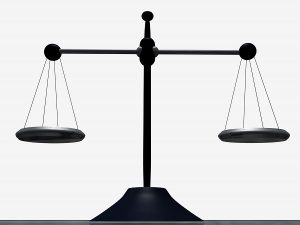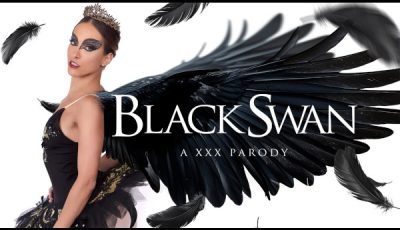A Ruling Met With Scorn, But Good For Parody Porn
 NEW YORK – A district court judge in New York has ruled a raunchy parody of the Dr. Seuss classic “How the Grinch Stole Christmas!” is a “transformative parody” protected by fair use and does not violate the copyright of the original story.
NEW YORK – A district court judge in New York has ruled a raunchy parody of the Dr. Seuss classic “How the Grinch Stole Christmas!” is a “transformative parody” protected by fair use and does not violate the copyright of the original story.
In 2016, Dr. Seuss Enterprises, which handles the author’s estate, sent cease and desist letters and legal threats to playwright Matthew Lombardo, claiming his theatrical parody “Who’s Holiday!“ was derivative of the original work. As a result, an off-Broadway production of the show was cancelled, leaving Lombardo in the lurch.
Lombardo didn’t take the setback lying down though, and filed suit in Federal District Court. In the suit, Lombardo argued the play is a parody of the original, not a derivative work, thereby qualifying it as fair use protected by the First Amendment.
The Seuss estate didn’t buy the argument, claiming in response Lombardo’s play was clearly derivative and “a blatant infringement” of the original work.
“By plaintiffs’ logic, any unimaginative playwright could take well-known children’s characters, age them, use them as the butt of raunchy jokes, label it parody and commercialize that work,” the estate argued in a recent filing. “This is not commentary or a ridicule on a work, it is a lazy way to get laughs and sell tickets.”
Judge Alvin K. Hellerstein saw things differently – and favorably, not just from the perspective of Lombardo, but from the perspective of adult entertainment studios which produce bawdy parody works of their own, as well.
In his analysis, Hellerstein concluded Lombardo’s work had so transformed the characters and setting of the original work “there is virtually no possibility that consumers will go see the play in lieu of reading Grinch or watching an authorized derivative work.”
Among other major and unavoidable differences between Lombardo’s tale and the original, Who’s Holiday! features descriptions of alcohol and drug abuse, teen pregnancy, murder and the nature of life behind bars – none of which make an appearance in the family-friendly original, obviously.
As the website promoting the play describes it, the story follows “a middle-aged Cindy Lou Who, now residing in a broken down trailer in the snowy hills of Mount Crumpit. As she prepares to host a Christmas Eve party for her friends, she recalls from her own perspective that fated night when she first met the Grinch, and the strange turn of events her life has taken for the past 40 years.”
For Hellerstein, the thematic differences, significant change in setting and other major departures from the tone and text of the original work seem to have cemented it as a protected parody, rather than an unlicensed derivative work.
“Rather than trading on the character of Cindy Lou Who and the setting of Whoville for commercial gain, [Mr. Lombardo] turns these Seussian staples upside down and makes their saccharin qualities objects of ridicule,” Hellerstein wrote.
It’s far from a sure bet a court would rule the same way in considering whether any given porn parody constitutes protected fair use or an impermissible derivative work, simply because every case is different and hinges on its own set of facts. Still, from an adult industry perspective, it’s encouraging to see a court look past the potential offensiveness of the parody work and rule strictly on the merits of a case which pits a beloved children’s book against a parody which is decidedly ‘family-unfriendly.’
More immediately and concretely, the ruling opens the door for Lombardo to finally go forward with staging Who’s Holiday!
“There was a cloud of infringement over this play and that’s been lifted,” Lombardo said of Hellerstein’s ruling. “The show goes on.”
Image: © Sergio Roberto Bichara













